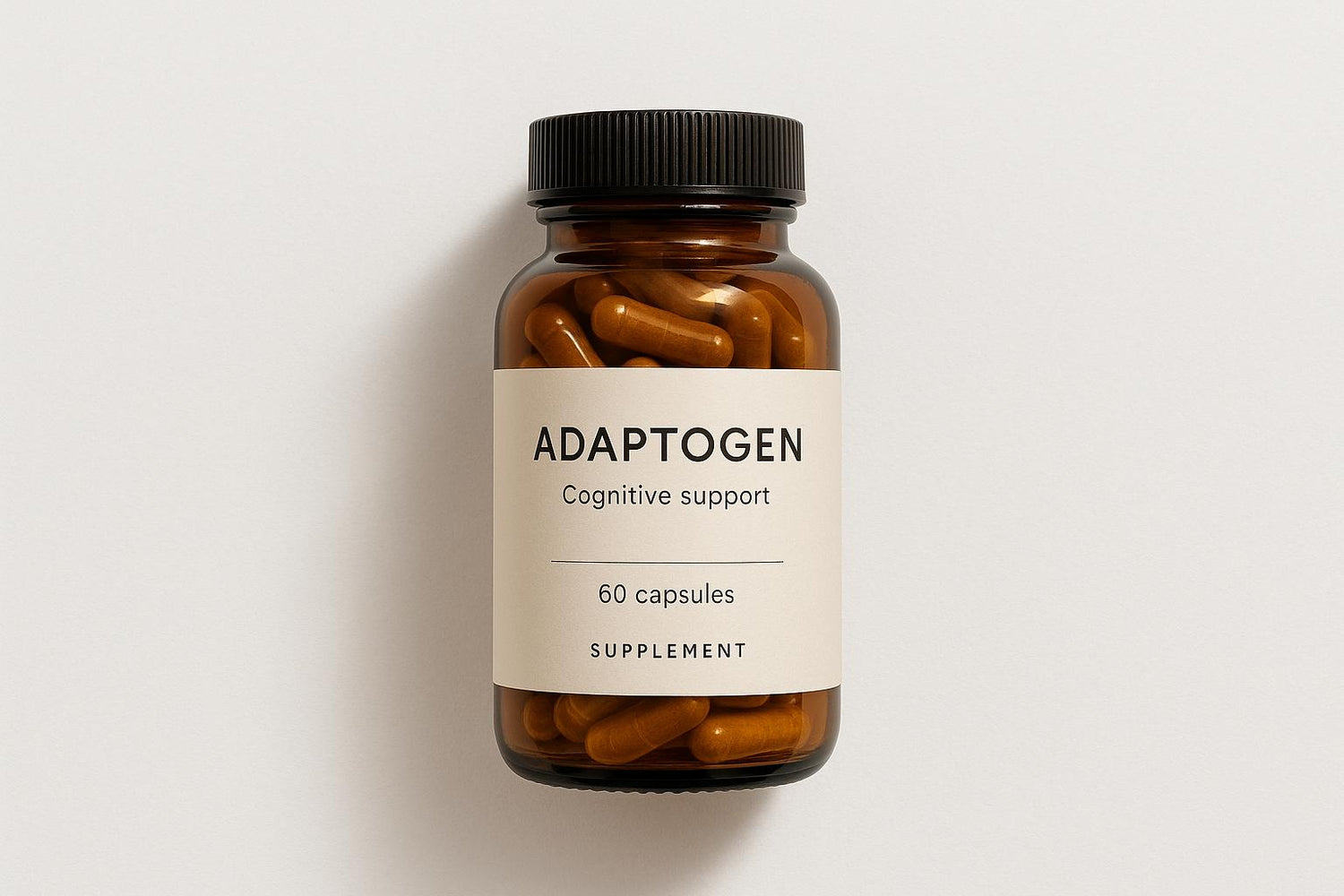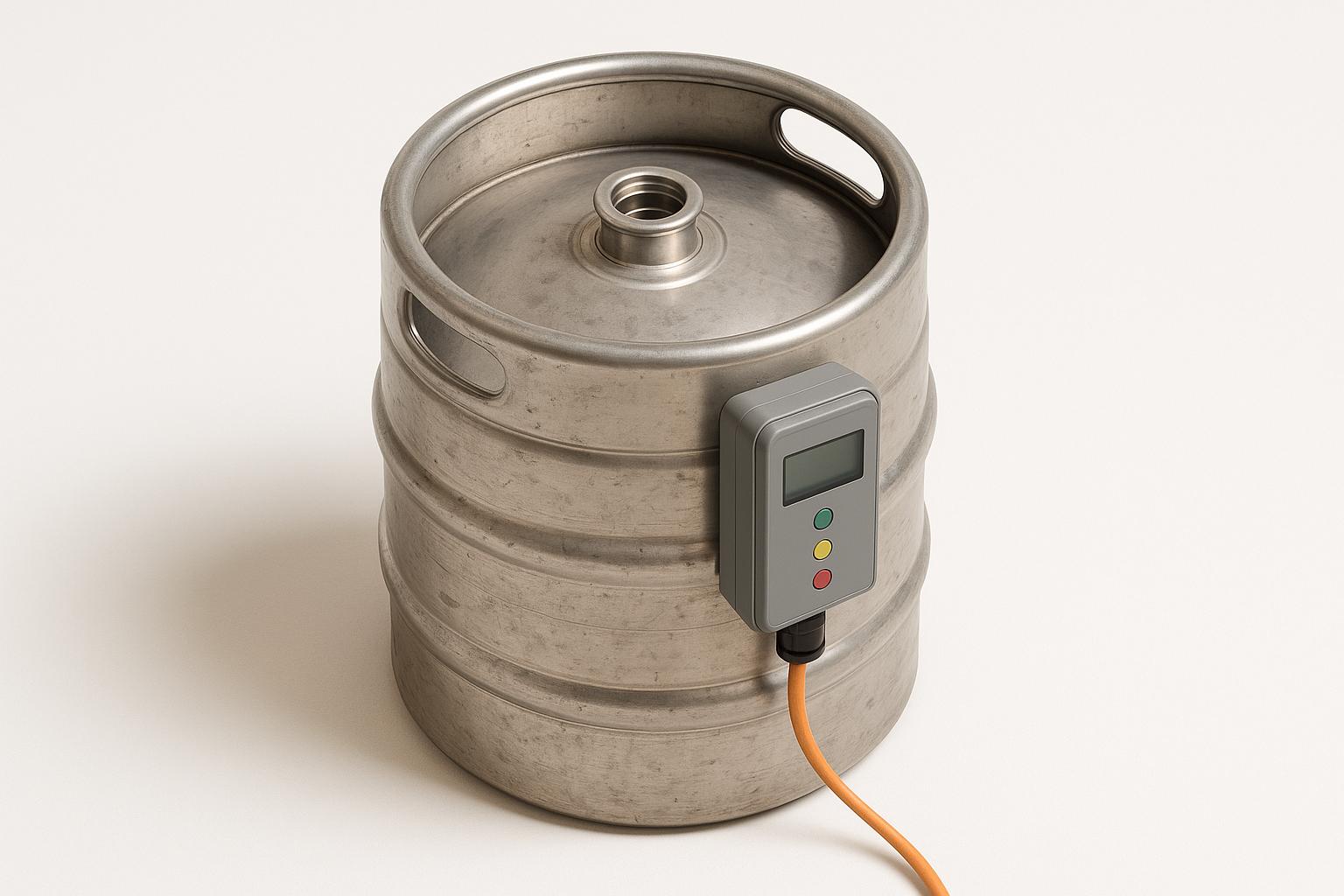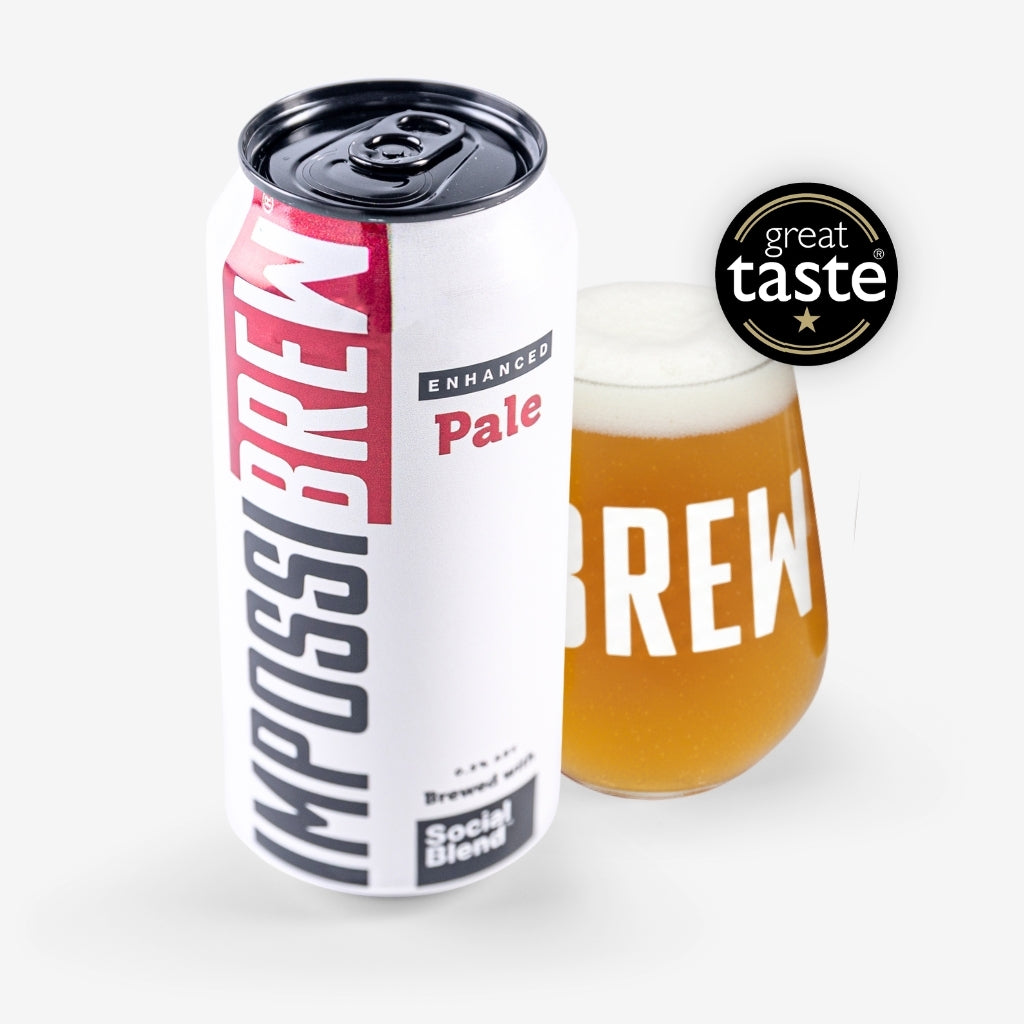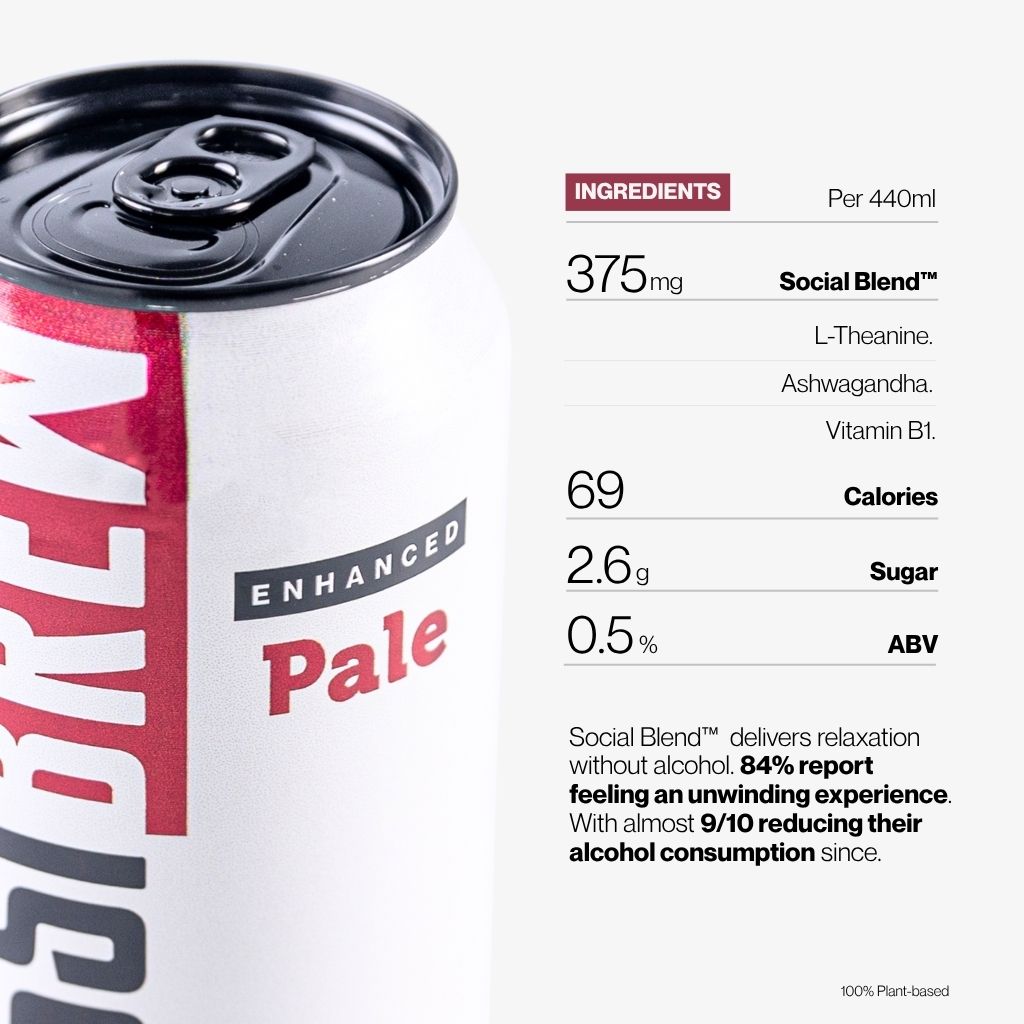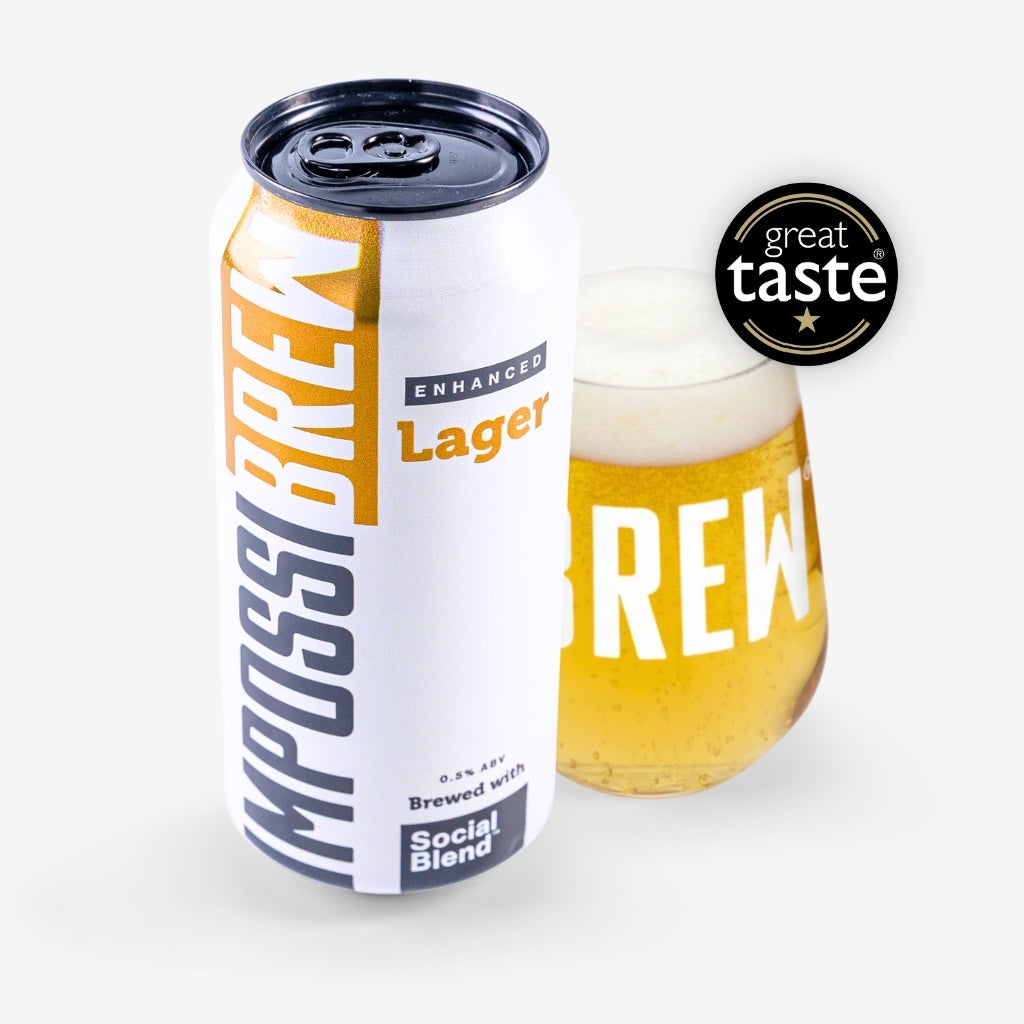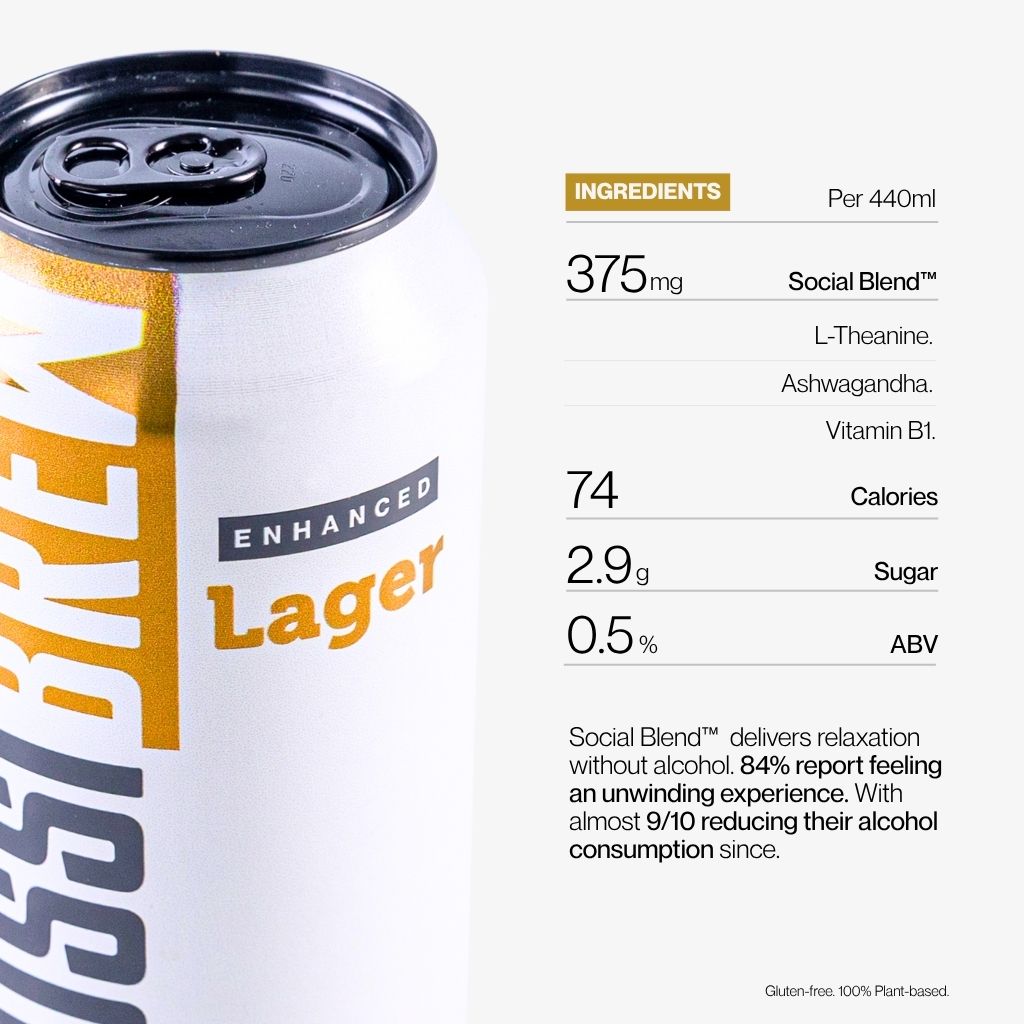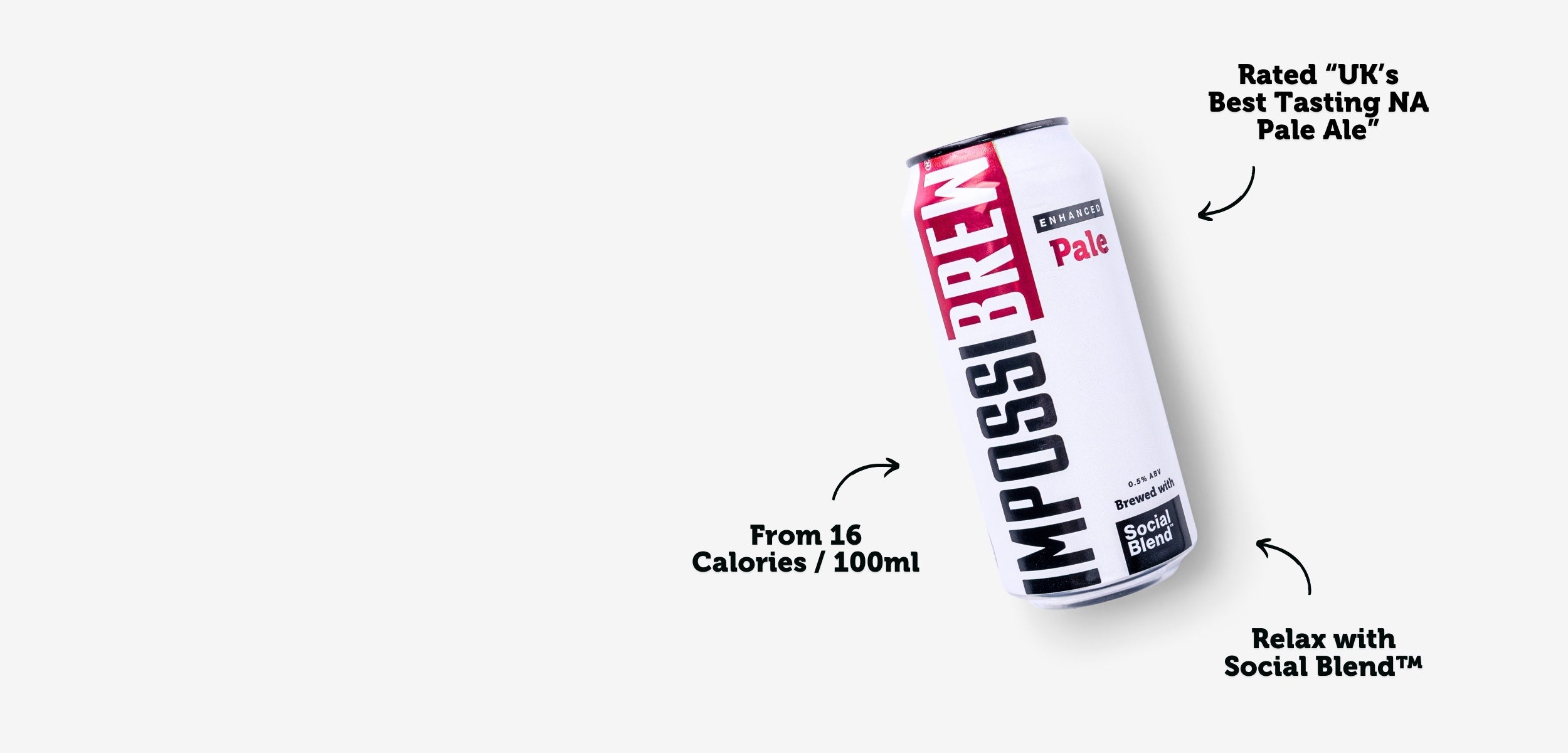Adaptogens are natural substances from plants and mushrooms that help your body manage stress and improve mental clarity. Unlike stimulants like caffeine, they work by balancing your stress response, supporting focus, memory, and mental energy. The effects depend on the dose - smaller amounts may relieve stress, while higher doses can boost cognitive performance. Popular options include:
- Ashwagandha: Lowers cortisol, supports memory.
- Rhodiola rosea: Boosts focus and stamina.
- Schisandra chinensis: Improves clarity and reaction time.
- Lion’s Mane mushroom: Promotes long-term brain health.
To find the right dose, start small and adjust while monitoring effects. Timing matters too - energising types like Rhodiola work best in the morning, while calming ones like Ashwagandha are better in the evening. Pairing them with healthy habits like exercise and balanced meals can enhance their benefits. For convenience, ready-made products such as IMPOSSIBREW® beers offer an easy way to include adaptogens in daily life, priced at around £1.97 per can. Always consult a healthcare professional if you’re on medication or have specific health concerns.
Adaptogens: The Natural Secret to Beating Stress & Boosting Energy
How Adaptogens Work in Your Brain
Adaptogens help improve how your brain performs by balancing its functions. Think of your brain as a complex network that handles memory, stress, and information processing. Unlike stimulants that push your brain into overdrive, adaptogens work more like a conductor, ensuring all parts of your brain work in sync.
This balance is key to understanding how adjusting doses of adaptogens can fine-tune their effects on your mental performance, building on the idea of maintaining your body's natural equilibrium.
How Adaptogens Lower Stress
Your brain’s stress response is controlled by the hypothalamic-pituitary-adrenal (HPA) axis, a system that releases cortisol, the stress hormone, when challenges arise. While short bursts of cortisol can heighten focus, prolonged high levels can lead to problems like memory lapses, trouble concentrating, and that frustrating mental fog.
Adaptogens step in as stress response modulators, not by blocking cortisol outright but by helping your body produce just the right amount at the right time. If cortisol spikes unnecessarily, adaptogens help bring it down. When you need focus under pressure, they encourage a balanced hormone response, avoiding the jittery effects associated with stimulants.
They achieve this through several pathways. Adaptogens influence the production of neurotransmitters like serotonin, dopamine, and GABA - chemicals that regulate mood, motivation, and calm focus. They also boost mitochondrial energy production, ensuring neurons function efficiently.
The result? A more stable stress response. Instead of the usual cycle of high alertness followed by exhaustion, your brain stays steady, allowing you to think clearly under pressure and avoid burnout after a demanding day.
These regulatory effects pave the way for the specific benefits that different adaptogens can provide.
Brain Benefits of Popular Adaptogens
Each adaptogen offers its own set of cognitive benefits, working through unique mechanisms in the brain. Understanding these differences highlights why dosage is so important - each adaptogen has an optimal range to deliver its best effects.
- Ashwagandha is known for reducing cortisol levels and improving memory. It protects brain cells from oxidative damage and supports the growth of dendrites, the branch-like structures that help neurons communicate. This makes it particularly useful for those dealing with chronic stress that hampers learning and memory.
- Rhodiola rosea is all about boosting mental energy and stamina. It improves how your brain uses oxygen and supports the production of norepinephrine and dopamine, key neurotransmitters for focus and motivation. It’s especially helpful during intense mental tasks or when facing tight deadlines.
- Schisandra chinensis stands out for enhancing mental clarity and reaction time. By supporting liver function, it helps the body eliminate metabolic waste that can cloud thinking. It also seems to improve processing speed, making it easier to switch between tasks and stay focused on details.
- Lion’s Mane mushroom takes a different approach, promoting the production of nerve growth factor (NGF), a protein essential for neuron health and growth. This makes it especially valuable for long-term cognitive support and memory improvement.
What’s fascinating about adaptogens is how their effects change with dosage. A small dose of Rhodiola might provide a gentle energy boost, while a higher dose can significantly enhance endurance during prolonged focus. Similarly, low doses of Ashwagandha may offer mild stress relief, but for stronger cognitive benefits, a consistent, higher dose is often needed.
The impact of adaptogens depends heavily on finding the right dose for your needs. Factors like your brain chemistry, stress levels, and daily challenges all play a role in determining how much of each adaptogen will deliver the best results for your mental performance.
How Dose Amount Affects Results
When it comes to adaptogens, the amount you take can make a big difference in how effective they are. Getting the right dosage is essential to unlocking their potential for boosting cognitive performance. Whether you're aiming to sharpen your focus or manage stress, finding the right balance is crucial.
Low Doses vs High Doses: What to Expect
Adaptogens offer a range of benefits, but the dosage determines how noticeable these effects are. Low doses are generally associated with gentle stress relief and a slight improvement in focus - perfect for managing everyday tasks. On the other hand, higher doses may deliver a stronger boost, helping you perform under pressure or lifting your mood more noticeably. However, there’s a trade-off: higher doses come with a greater chance of side effects, such as overstimulation or even drowsiness.
This makes it important to weigh the benefits against potential drawbacks and adjust accordingly.
Safety Considerations and Tolerance
Dosage doesn’t just impact effectiveness - it also affects safety. Using high doses over an extended period can reduce the benefits, as your body may build a tolerance. To counter this, experts often suggest cycling adaptogens - taking them for a set period, followed by a short break. This approach helps maintain their effectiveness.
Another key consideration is how adaptogens interact with other medications. For example, some may influence how your body processes treatments for conditions like diabetes, high blood pressure, or mood disorders. If you’re on prescribed medication, it’s always a good idea to check with your GP before introducing adaptogens into your routine.
Certain groups should exercise extra caution. Pregnant or breastfeeding individuals, children, and those with autoimmune or mood-related conditions should avoid adaptogens unless advised otherwise, as research on their safety in these groups is still limited.
To find your ideal dose, start small and increase gradually while paying attention to how your body responds. Keep track of changes in focus, stress levels, and any side effects. This step-by-step approach can help you determine the most effective dose for enhancing your cognitive performance.
sbb-itb-a752bf8
Adding Adaptogens to Your Daily Routine
Incorporating adaptogens into your day can be a simple yet effective way to support mental clarity and overall well-being. By paying attention to timing, dosage, and pairing them with healthy habits, you can make the most of their potential benefits.
When and How Much to Take
The timing of adaptogen intake can play a role in how they affect you, though individual responses vary. Many people prefer taking adaptogens in the morning to set a positive and energised tone for the day. For instance, Rhodiola rosea is often taken in the morning for its energising properties, while ashwagandha is commonly used in the evening to help with relaxation and stress management.
For dosage, it’s best to follow the instructions on the product label or consult a healthcare professional to determine what works for you. Consistency is crucial - integrating adaptogens into your daily routine, such as alongside your morning coffee or tea, can help you maintain their benefits over time.
Pairing this practice with other healthy lifestyle choices can further enhance their effects on cognitive performance.
Pairing Adaptogens with Healthy Habits
To get the most out of adaptogens, consider combining them with habits that promote overall well-being. Regular exercise, mindfulness practices, and a balanced diet can amplify their benefits. For example, taking a brisk walk or practising a few minutes of meditation after consuming your adaptogen may elevate your mood and sharpen your focus.
You might also improve adaptogen absorption by pairing them with a small amount of healthy fat, such as a handful of nuts or a spoonful of nut butter. Prioritising good sleep hygiene is equally important, as quality rest complements the cognitive support adaptogens can provide. By integrating these habits, you create a routine that consistently supports mental clarity and resilience.
If you’re looking for an even simpler option, ready-made adaptogen products can streamline the process.
Ready-Made Products with Adaptogens
For those who prefer convenience, ready-made adaptogen products offer an easy way to incorporate these compounds into your daily life. One standout option is IMPOSSIBREW®, which has crafted enhanced non-alcoholic beers infused with adaptogens through their proprietary Social Blend™. These beverages offer a unique combination of great taste, social enjoyment, and the benefits of adaptogens - all in one can.
IMPOSSIBREW®'s Enhanced Lager and Enhanced Hazy Pale are priced at approximately £1.97 per can, making them an affordable and practical choice for consistent adaptogen intake. With a focus on high-quality ingredients, transparent sourcing, and traditional brewing techniques, these products are ideal for unwinding after a long day or sharing with friends. By incorporating these ready-made options into your routine, you can effortlessly maintain balance and support cognitive performance.
Conclusion: Getting the Most from Adaptogen Doses
Getting the right dose is crucial when it comes to tapping into the potential benefits of adaptogens for cognitive performance. Take too little, and the effects might be barely noticeable. Take too much, and you not only risk side effects but may also reduce the overall effectiveness. Striking the right balance is the foundation for crafting a regimen that works for you.
The secret lies in consistency and gradual adjustments. Start small, observe how your body responds over a few weeks, and tweak the dosage as needed. Keep in mind that adaptogens shine brightest when combined with a well-rounded approach to wellness, including good sleep, exercise, and nutrition.
Timing matters, too. Pairing your dose with your body’s natural rhythms can amplify the effects. For instance, energising adaptogens like Rhodiola rosea are best taken in the morning, while calming ones like ashwagandha are more effective in the evening. This thoughtful timing can help boost focus, memory, and mental clarity, making adaptogens a seamless part of your daily routine.
For those looking for a hassle-free way to incorporate adaptogens, IMPOSSIBREW® offers a clever solution. Their Social Blend™ non-alcoholic beers, priced at about £1.97 per can, combine convenience with enjoyment, making it easy to maintain regular adaptogen intake.
As the interest in cognitive enhancement through adaptogens grows, the key to success will always be informed and responsible use. By sticking to dosage guidelines, paying attention to how your body reacts, and keeping expectations realistic, you can make these natural compounds a valuable ally in boosting mental performance and resilience.
FAQs
How do I find the right dose of adaptogens to suit my lifestyle?
When figuring out the right amount of adaptogens to take, it’s important to consider your personal needs and goals. A good starting point is a low dose, typically around 200–250 mg for commonly used adaptogens like ashwagandha. From there, you can gradually increase the amount, keeping an eye on how it affects you. Notice any changes in your energy, focus, or overall sense of well-being as you adjust.
The specific adaptogen and dosage you choose should align with your particular stressors or objectives. For instance, some adaptogens are more effective for easing stress, while others may help improve focus or promote relaxation. Pay attention to how your body responds, and if you’re uncertain or dealing with specific health concerns, it’s always a good idea to seek advice from a healthcare professional.
Can adaptogens cause side effects or interact with medications or supplements?
Adaptogens are usually safe for most people, but they can sometimes lead to side effects or interact with medications and supplements. For instance, they might affect blood sugar or blood pressure, which could interfere with treatments for conditions like diabetes, high blood pressure, or medications that affect the immune system.
To stay on the safe side and avoid any unwanted interactions, it’s a good idea to speak with a healthcare professional before incorporating adaptogens into your routine. This is especially important if you're currently on any medications or supplements. A quick consultation can help reduce risks and ensure these herbs work well for you.
How can I include adaptogens in my daily routine to boost cognitive performance?
To boost mental performance, think about incorporating adaptogens into your daily habits in straightforward and consistent ways. Well-known adaptogens like Ashwagandha, Rhodiola, and Ginseng are available in various forms, such as herbal teas, powders, or capsules. Taking them in the morning or early afternoon is a good idea, as they can help sharpen focus and ease stress throughout the day.
You could try adding adaptogen powders to your smoothies, sprinkling them over your breakfast, or brewing a soothing tea. The key to seeing their effects lies in consistent use over a few weeks. Making adaptogens part of your morning routine or enjoying them during a work break is a simple way to integrate them into your lifestyle.

